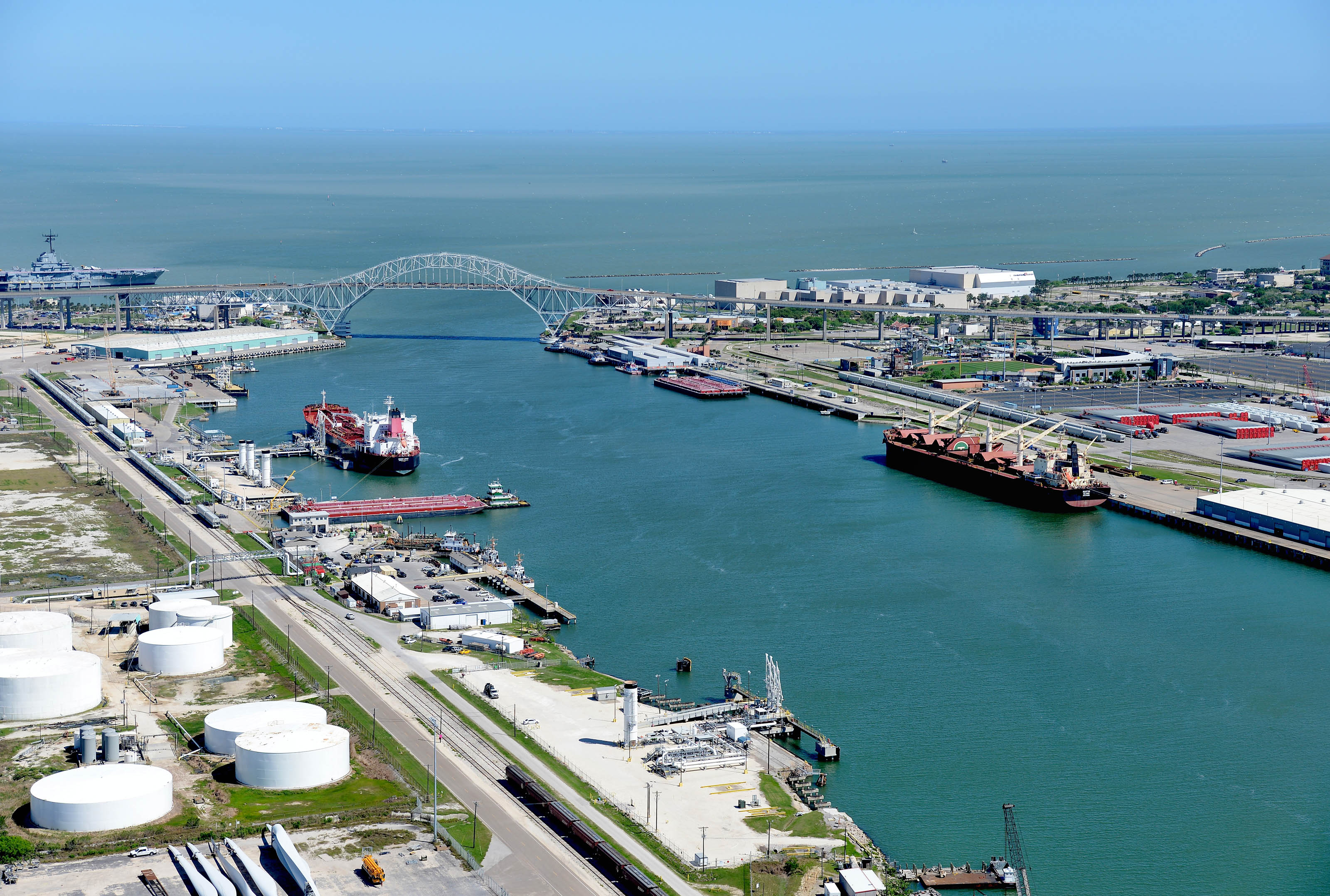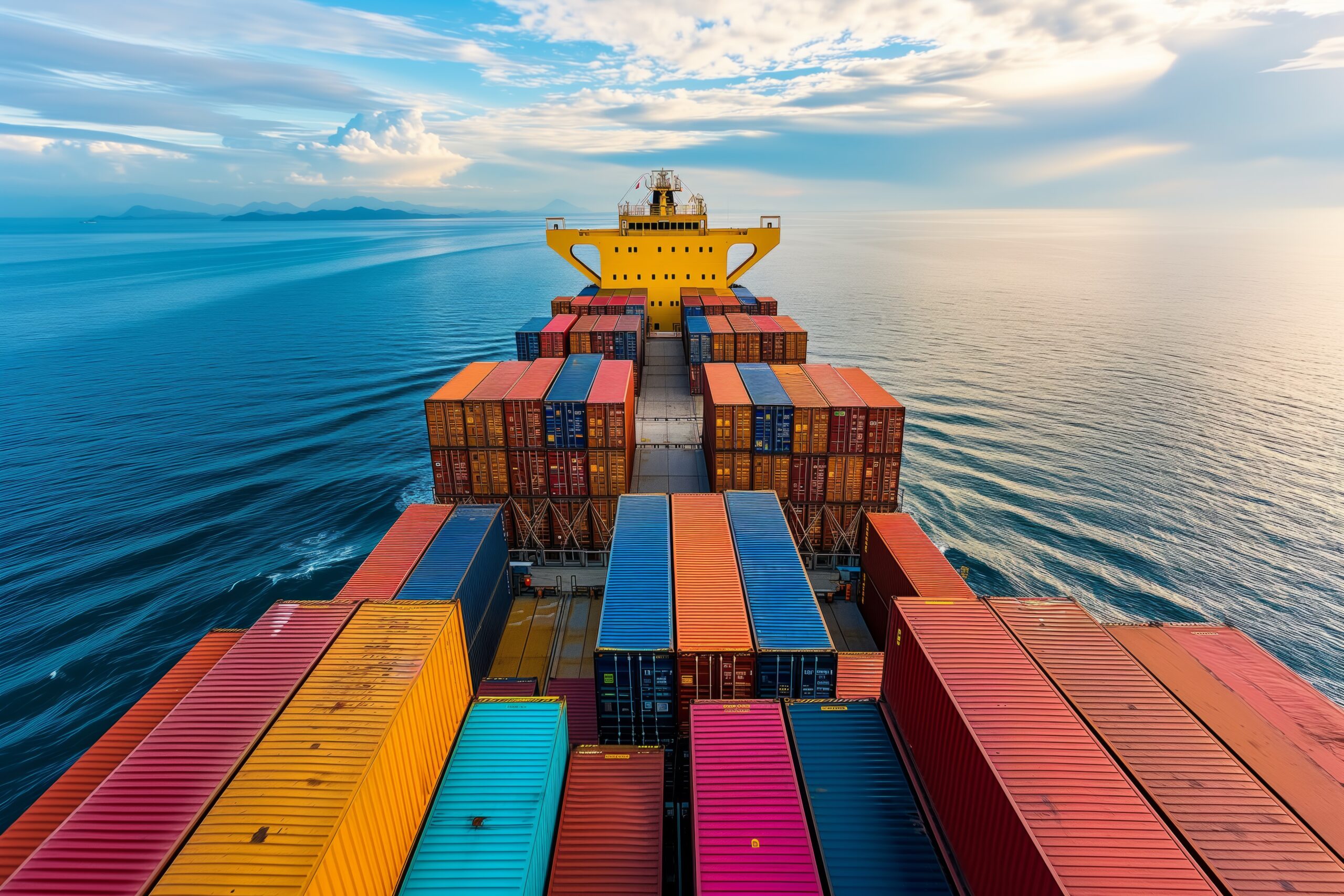By Kevin Crowley, Faith DiBiagio and David Wethe (Bloomberg) — Water shortages in South Texas are posing major risks to a fast-growing industrial hub that’s crucial to President Donald Trump’s twin goals of dominating global energy markets and slashing trade deficits.
Corpus Christi, a Gulf Coast city 400 miles (640 kilometers) south of Dallas, is in the grip of a worsening drought that’s already prompted lawn-watering bans and warnings that harsher restrictions may be necessary. Seven years of abnormally dry weather coincided with rapid industrial growth in the nation’s biggest oil-export hub, stretching supplies of fresh water.
Municipal leaders are at odds over what to do. The city council recently halted work on a desalination plant that would have treated seawater after cost estimates spiraled to more than $1 billion and sparked outrage among some residents. The issue also tapped into long-simmering resentment of the growing industrial presence of major water users such as Exxon Mobil Corp., Koch Industries LLC, Celanese Corp., and Occidental Petroleum Corp.
If the drought doesn’t break in the next 12 months or so, even stricter usage limits may be necessary that would curb available supplies by 25%, officials have warned.
“Oh, yes, it’ll impact” industry, said Brian Williams, general manager of San Patricio Municipal Water District, which counts large companies among its biggest customers. “The current drought, it looks like it’s not going to let up. Everybody’s considering what options are available out there.”
Corpus Christi has grown from a remote 19th-century trading post to a critical nexus of the global oil, natural gas and chemical sectors. Since 2010, the city of 320,000 people has seen more than $57 billion of direct capital investment, according to economic development figures. The deepwater port is an export hub for Permian Basin crude and gas while the coastline is home to six refineries, an LNG terminal and several massive petrochemical plants.
About half of the city’s water supply now goes to commercial and industrial customers at a time when the inland river systems that feed the region are drying up. Choke Canyon Reservoir and Lake Corpus Christi, the city’s main water sources, are currently just 12% full, as severe drought conditions constrain river flows for hundreds of miles around.
Lawn watering already is prohibited in the city and severe restrictions are in effect for things like washing cars and maintaining swimming pools. The two main reservoirs are forecast to run so low by November 2026 that an emergency declaration will mandate even stricter curtailments.
“Everybody’s worried about that date,” said John Byrum, executive director of Nueces River Authority, which manages surface-water resources in the region.
The struggle is pitting residents against heavy industry that provides jobs and tax revenues for schools, libraries and public safety. State climatologists aren’t expecting the drought to break any time soon.
Byrum, along with some local representatives and businesses, wants to build a multi-phased seawater desalination plant that could eventually become the largest in the country. In addition to the short-term need, he expects water demand to rise 30% over the coming years as the city grows.
“They need more water for the future,” he said. “My message to them is ‘Hey, now’s the time to get it.’”
But at a contentious, 12-hour meeting last month the city council voted to halt the desalination project, despite a $1 billion financing guarantee from the state.
In one exchange, Councilwoman Carolyn Vaughn accused an official from Governor Greg Abbott’s office of “intimidating” her to support the plan despite her concerns that it’s too expensive and favors industry over residents.
“This tells me they don’t care if the citizens pay for this, even though we know its for industry,” she said during the Sept. 2 meeting.
Abbott’s Chief of Staff Robert Black held talks with Vaughn and other local officials, encouraging them to move forward with the desalination plant, according to a statement from the governor’s office. Black also warned them that failure to support the facility would “would be putting the state in very a bad situation when it comes to future projects as they have proven to be an untrustworthy partner,” the statement said.
“The state has invested tremendous resources into this project — $235 million in direct funding, an offer of a $757 million below market-rate loan, and countless man-hours of assisting the City with navigating the permitting process and environmental reviews,” according to the statement from Abbott’s office.
Mayor Paulette Guajardo’s office said in a statement that although the vote “represented a setback in advancing our proposed seawater desalination project, our focus on securing a reliable long-term water source remains firm.” The council will consider “new options and approaches” later this month.
The dispute erupted anew during an Oct. 7 meeting at which residents repeatedly blamed new industrial facilities such as the sprawling Exxon-Saudi Basic Industries Corp. petrochemical plant for hogging water supplies and raising residential bills.
“As a resident, I haven’t seen any benefits to the area,” Elida Castillo, program manager for the climate watchdog group Chispa Texas, said in an interview. “The abatements that they get, the low water rates that they enjoy, the amount of water that they consume, it’s just made the quality of our life go down.”
An Exxon spokeswoman said their joint venture with Sabic “was designed to recycle water, and we continually look for ways to reduce our water use. We are also exploring alternative water sources in event of a curtailment.”
Big industrial users are making contingency plans, according to Mike Culbertson, who leads the Corpus Christi Regional Development Corporation that’s charged with luring new businesses to the area.
“There’s no more cheap water,” he said. “This is a warning for all” regions across the South looking to attract heavy industry. Koch Industries, Occidental and Celanese didn’t respond to requests for comment.
Culbertson is now focusing on ways to continue the region’s economic growth without making the situation worse: “We’re looking to see what companies we can bring here that don’t use a lot of water.”
© 2025 Bloomberg L.P.
Editorial Standards · Corrections · About gCaptain
This article contains reporting from Bloomberg, published under license.

 Join The Club
Join The Club










